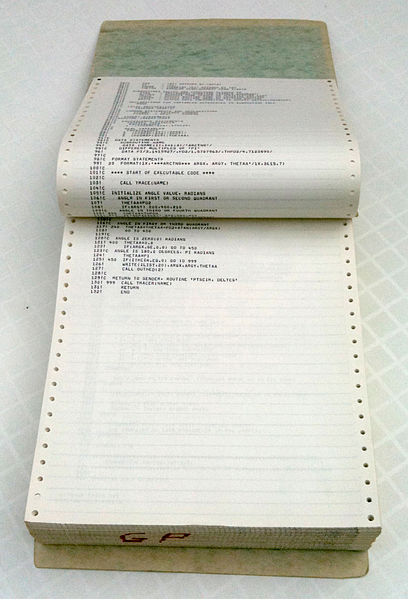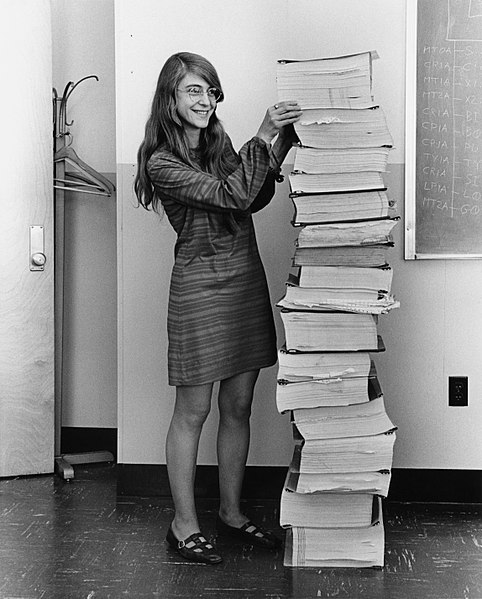Fanfold paper was commonly used for computer printouts from the 1950s to the 1980s. What was the typical thickness of such paper?
- The answer must be a measure of thickness, not weight. I am well aware that paper is typically sold by weight. Nonetheless, that is not at all what the question is asking.
- Paper is sold in various thicknesses. I'm looking for the kind that was typically used for program listings, the cheap "green-bar" stuff, like in the picture above.
- Specialty paper such as carbon- or carbonless-forms or checks should be excluded.
- The pages must be continuous (un-separated) when measured. So, simply stating the thickness of non-fanfold paper is not acceptable.
- There are many ways to express the answer, such as the thickness of one page, the thickness of 1000 pages, how many pages in one inch, and so on. Use whatever method you want, as long as the answer clearly specifies how the measurement is being made. Either inches, cm, or mm are acceptable units.

